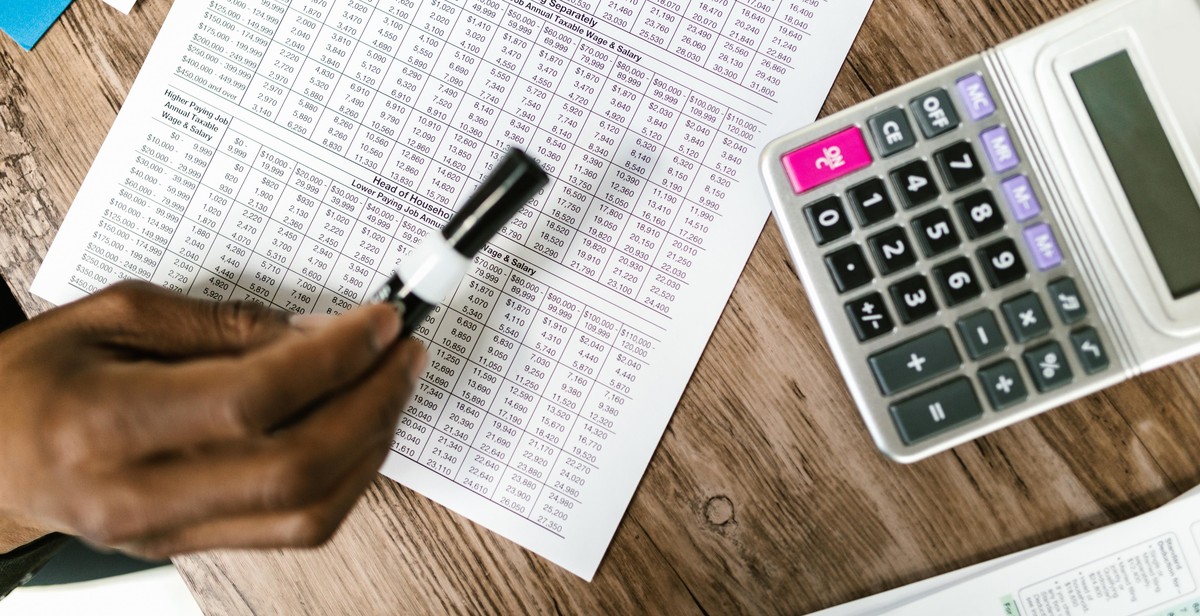The Importance of Managing Personal Finances in a Changing Economy
Managing personal finances is a crucial aspect of financial stability, especially in a changing economy. The economy is constantly evolving, and with it, the financial landscape. Inflation rates, interest rates, and market fluctuations can all impact personal finances, making it essential to have a solid financial plan in place.
Unfortunately, many people struggle with managing their finances, which can lead to financial instability, debt, and stress. However, with the right tools and strategies, it is possible to take control of your finances and achieve financial stability.
Why is it Important to Manage Personal Finances?
Managing personal finances is crucial for several reasons. Firstly, it helps individuals to achieve their financial goals, such as saving for retirement, buying a house, or paying for their children’s education. Secondly, it provides a sense of financial security and peace of mind, knowing that you are prepared for any financial challenges that may arise. Finally, managing personal finances can help individuals to avoid debt, which can be a significant source of stress and financial burden.
How Can You Manage Personal Finances in a Changing Economy?
Managing personal finances in a changing economy requires a proactive approach. It involves creating a budget, tracking expenses, saving for emergencies, and investing wisely. It also means staying informed about economic trends and adjusting your financial plan accordingly.
In this article, we will provide you with tips and strategies for managing your personal finances in a changing economy, so you can achieve financial stability and peace of mind.

Assess Your Financial Situation
Managing personal finances requires a clear understanding of your current financial situation. To achieve financial stability, it is essential to assess your financial situation regularly. Here are two important steps to assess your financial situation.
Calculate Your Net Worth
Your net worth is the difference between your assets and liabilities. To calculate your net worth, list all your assets, including cash, investments, real estate, and personal property. Then, list all your liabilities, including mortgages, loans, and credit card debt. Subtract your liabilities from your assets to determine your net worth.
Calculating your net worth can help you understand your financial position. If your net worth is positive, it means you have more assets than liabilities. On the other hand, a negative net worth indicates that you owe more than you own. By tracking your net worth over time, you can measure your progress towards achieving your financial goals.
Analyze Your Income and Expenses
Another important step to assess your financial situation is to analyze your income and expenses. Start by listing all your sources of income, including your salary, bonuses, and investment income. Then, list all your expenses, including housing, transportation, food, and entertainment.
Use a budgeting tool to categorize and track your expenses. Analyzing your income and expenses can help you identify areas where you can cut back on spending and save more money. It can also help you plan for future expenses, such as a down payment on a house or a child’s education.
| Assets | Liabilities |
|---|---|
| Cash | Mortgage |
| Investments | Loans |
| Real Estate | Credit Card Debt |
| Personal Property |
Assessing your financial situation is the first step towards achieving financial stability. By calculating your net worth and analyzing your income and expenses, you can make informed decisions and take control of your finances.

Create a Budget
Creating a budget is the foundation of managing personal finances. It helps to identify the income and expenses and provides a structure for making informed financial decisions. Here are some steps to create a budget:
Set Financial Goals
The first step in creating a budget is to set financial goals. These goals can be short-term or long-term, such as paying off debts, saving for emergencies, or planning for retirement. Once you have identified your goals, you can prioritize and allocate your funds accordingly.
Track Your Spending
Tracking your spending is an essential part of creating a budget. It helps to identify where your money is going and where you can cut back. You can use a spreadsheet, an app, or a pen and paper to track your expenses. Be sure to include all your expenses, even the small ones.
Reduce Your Expenses
Reducing your expenses is crucial to creating a budget that works for you. Look for ways to cut back on unnecessary expenses, such as eating out or subscription services. You can also negotiate bills, switch to a cheaper service provider, or buy generic products instead of brand name ones.
| Category | Monthly Budget | Actual Spending |
|---|---|---|
| Housing | $1,500 | $1,400 |
| Transportation | $500 | $400 |
| Groceries | $300 | $250 |
| Entertainment | $100 | $50 |
Creating a budget may seem daunting, but it is a crucial step towards financial stability. By setting financial goals, tracking your spending, and reducing your expenses, you can create a budget that works for you and helps you achieve your financial goals.

Build an Emergency Fund
One of the most important steps you can take to achieve financial stability is to build an emergency fund. An emergency fund is a savings account specifically for unexpected expenses, such as medical bills or car repairs. Here’s why you need an emergency fund, how much to save, and where to keep your emergency fund.
Why You Need an Emergency Fund
Life is unpredictable, and unexpected expenses can happen to anyone at any time. Without an emergency fund, you may have to rely on credit cards or loans to cover these expenses, which can lead to debt and financial stress. With an emergency fund, you’ll have peace of mind knowing that you have money set aside for unexpected expenses.
How Much to Save
Experts recommend saving three to six months’ worth of living expenses in your emergency fund. This may seem like a lot, but it’s important to have enough money to cover your expenses if you lose your job or experience a financial setback. If you’re just starting out, aim to save at least $1,000 and gradually increase your savings over time.
Where to Keep Your Emergency Fund
Your emergency fund should be easily accessible, but not too accessible. You want to be able to access your money quickly in case of an emergency, but you don’t want to be tempted to use it for non-emergency expenses. Consider keeping your emergency fund in a separate savings account or money market account that’s not linked to your checking account. This will make it harder to access your money for non-emergency expenses.
| Pros | Cons |
|---|---|
| Provides peace of mind | May take time to build up |
| Helps avoid debt | May earn lower interest rates compared to other investments |
| Easily accessible in case of emergency | May be tempting to use for non-emergency expenses |
Building an emergency fund may take time and discipline, but it’s an essential step towards achieving financial stability. Start small and gradually increase your savings over time. With an emergency fund, you’ll have peace of mind knowing that you’re prepared for unexpected expenses.

Pay Off Debt
Debt can be a major source of stress and anxiety, especially during an economic downturn. If you’re struggling with debt, it’s important to take action and make a plan to pay it off. Here are some tips to help you get started:
Make a Plan to Pay Off Debt
The first step in paying off debt is to make a plan. Start by listing all of your debts, including the amount owed, interest rate, and minimum payment. Then, prioritize your debts based on the interest rate and amount owed. This will help you focus on paying off the debts that are costing you the most in interest charges.
Prioritize Your Debts
Once you have prioritized your debts, it’s time to start paying them off. Make the minimum payment on all of your debts each month, but focus any extra money on paying off the highest-priority debt first. Once that debt is paid off, move on to the next highest-priority debt. This approach is known as the debt snowball method, and it can be a highly effective way to pay off debt.
Consider Consolidation
If you have multiple debts with high interest rates, you may want to consider consolidating your debt into one loan with a lower interest rate. This can make it easier to manage your debt and save you money in the long run. However, be sure to do your research and choose a reputable lender with reasonable terms and fees.
| Debt | Amount Owed | Interest Rate | Minimum Payment |
|---|---|---|---|
| Credit Card A | $5,000 | 18% | $100 |
| Credit Card B | $3,000 | 22% | $75 |
| Personal Loan | $10,000 | 12% | $200 |
By following these tips and making a plan to pay off your debt, you can take control of your finances and achieve greater financial stability in a changing economy.

Invest for Your Future
If you want to secure your financial future, investing is a crucial step. Here are some tips to help you get started:
Start Investing Now
The earlier you start investing, the better. Even if you can only afford to invest a small amount each month, the power of compound interest means that your money can grow significantly over time. Don’t wait until you have a large sum of money to start investing. Start now and let your investments grow.
Choose the Right Investment Options
Choosing the right investment options is crucial for your financial success. You need to consider your risk tolerance, investment goals, and the amount of time you have to invest. Some popular investment options include stocks, bonds, mutual funds, and real estate. Do your research and choose the options that align with your financial goals.
Diversify Your Portfolio
Diversification is key to reducing risk in your portfolio. Don’t put all your eggs in one basket. Spread your investments across different asset classes and industries. This can help protect your investments from market volatility and economic downturns.
By following these tips, you can start investing for your future and build a solid financial foundation.

Conclusion
In conclusion, managing personal finances in a changing economy can be challenging, but it is not impossible. By following the tips outlined in this article, you can take control of your finances and achieve financial stability.
Remember to:
- Create a budget and stick to it
- Reduce unnecessary expenses
- Save for emergencies and retirement
- Invest wisely
- Stay informed about changes in the economy
It is important to start implementing these tips as soon as possible. The longer you wait, the harder it will be to achieve financial stability. Remember that managing personal finances is a lifelong process, and it requires discipline, patience, and determination.
By taking control of your finances today, you can build a solid financial foundation that will enable you to achieve your financial goals and live the life you want.
| Author: | John Doe |
| Date: | June 30, 2021 |
